The content of the article
Propolis or bee glue is the building material for the hive, with the help of which hardworking bees close up holes in the walls. There he serves as a "nurse", disinfecting the area and preventing the penetration of foreign agents.
People from ancient times noticed this ability of propolis and tried to use it for medicinal purposes. Since then, bee glue is widely used in traditional and traditional medicine, physiotherapy, pharmacology and pharmaceuticals, homeopathy, etc.
Of course, like any other bee product, propolis is a highly concentrated product that, if handled carelessly, can have side effects. Therefore, it is important to familiarize yourself with the methods of using bee glue and possible contraindications.
Propolis Characteristic
Only bees produce the honey product - it does not form on its own.
The shade and consistency of the glue will depend on the habitat of the insects. In nature, dark brown propolis is most common, but sometimes you can find white, red, green and black. In the warm season, the consistency of the product is more liquid and sticky, and at low temperatures it hardens and becomes brittle.
Classic temperate propolis contains about 200 useful components, among them:
- vitamins of group B, E, H, P, A and C;
- propolis flavone;
- polyphenols;
- aldehydes;
- organic alcohols;
- resins;
- flavonoids (kempferol, apigenin, acacetin, hermanin);
- essential oils;
- fatty acid;
- wax;
- herbal balm;
- pollen;
- lipophilic acaricides (natural pesticides against certain parasites, such as ticks);
- amino acids;
- Proteins
- Sahara;
- enzymes;
- lactones, quinones, ketones;
- plant steroids.
Macro- and microelements (calcium, vanadium, magnesium, aluminum, phosphorus, potassium, nickel, sodium, zinc, copper, tin, manganese, sulfur, iron, cobalt, silicon, chromium, titanium, fluorine, strontium, antimony, selenium).
For treatment, a pure propolis concentrate (chewing gum) is used, as well as aqueous, oil and alcohol solutions, home ointments and creams.
Propolis Treatment
Bee glue is successfully used in all areas of medicine, allowing you to cope with various groups of diseases.
Propolis against pathogenic microflora
The composition of the product includes essential oils, which play the role of natural antibiotics, as well as various alcohols, amino acids and flavonoids. All these components effectively fight against pathogenic agents:
- Candida fungi and yeast infection;
- viruses (influenza, hepatitis, herpes, chickenpox and others);
- chopsticks (tuberculosis, intestinal);
- other microorganisms (trichomonas);
- allergic antigens;
- parasites (salmonella, roundworms, lamblia, etc.).
It is important to emphasize that bee glue destroys pathogenic representatives without disturbing the body’s natural microflora, without causing dysbiosis, vaginosis, etc. In this regard, propolis compares favorably with synthetic antibiotics.
Due to its properties, the bee product is effectively used for:
- colds (tonsillitis, tonsillitis, flu, bronchitis);
- mycoses of various locations;
- diseases of the oral cavity (candidiasis, glossitis, herpes, periodontal disease stomatitis);
- infectious diseases of the digestive tract and urogenital system;
- an allergic reaction.
Also, due to its antibacterial, decongestant and anti-inflammatory properties, bee glue helps fight nasopharyngeal diseases:
- sinusitis
- sinusitis;
- rhinitis (including allergic nature);
- sphenoiditis;
- ethmoiditis;
- frontitis.
Propolis tincture reduces redness and swelling of the mucous membranes of the sinuses, removes nasal congestion, runny nose.
The bee product is also effective for infections of the middle ear (otitis media). The ester of caffeic acid reduces inflammation of the middle and inner ear, restores hearing, eliminates shooting pains.
Propolis and pressure
Bee glue reduces the secretion of the enzyme tyrosine hydroxylase (TG), which prevents the relaxation of smooth muscles, the expansion of blood vessels, and normalization of blood circulation in the heart.
As a result of the decrease in TG, the heart freely pumps blood, due to which the pressure decreases to a normal level. Propolis is an ideal tool for the treatment of hypertensive conditions (hypertension and hypertensive crisis, preeclampsia, etc.).
Propolis and diseases of the digestive tract
For many centuries, the bee product has been used for diseases of the stomach and intestines, such as colitis, gastritis, high acidity, obstruction, ulcerative lesions.
Propolis heals mucous surfaces, while producing an anesthetic effect. At the same time, the acidity of the gastric secretion decreases, spasms of the smooth muscles of the stomach and intestines decrease.
Use bee glue and with severe intoxication of the body, chronic diarrhea, dysbiosis. It promotes the rapid removal of toxins and toxins, promotes the secretion of phagocytes - cells that bind and remove foreign particles.
The use of propolis slows down the growth of Campylobacter Euni, Staphylococcus aureus, Enterococcus fecal, which mainly provoke food poisoning.
Bee glue is also used to prevent and treat hemorrhoids. Use it in the form of home creams and ointments, rectal suppositories. The tool reduces inflammation of the hemorrhoidal nodes, restores normal blood flow in the veins, heals anal fissures.
Propolis and malignant processes
Antioxidants in the composition of bee glue slow down oxidative reactions in the body, reduce the risk of good and malignant neoplasms.
Thanks to propolis, cell membranes are cleaned and their normal respiration and nutrition are restored. Malignant cells stop dividing, thereby the tumor process slows down or stops (of course, in the early stages). The blood supply to the cancer cells is also disrupted, as a result of which they die and are excreted without affecting the living cells.
With advanced oncology, the bee product works as an anesthetic and immunomodulator, maintaining the patient's quality of life.
Scientists have revealed in propolis a unique compound CAPE, which prevents the growth of malignant cells of the intestine, cervix, prostate, etc. Red (Brazil) and brown (Cuba) types of bee glue have such valuable properties.
Propolis and leather
The product is rich in organic acids, vitamins, antioxidants and minerals, which comprehensively affect the skin, protect it from the negative effects of external factors.
Bee glue helps get rid of the following skin problems and diseases:
- acne and acne;
- abscesses, boils, pustular lesions;
- warts;
- ulcerative lesions;
- fungal diseases (candidiasis, mycosis);
- sweating in children;
- dermatitis of various nature (including allergic);
- mechanical wounds, punctures, cuts;
- burns and frostbite;
- abscesses and cysts;
- psoriasis;
- insect bites.
Propolis tincture treats warts in just 2 weeks. At the same time, it must be used both orally and topically in the form of lotions and applications.
With thermal and chemical burns, fatty propolis is melted to a cream. The tool has analgesic properties, contributes to the rapid healing of wounds and the growth of new tissue.
Propolis and other diseases
Effectively, the bee product fights other diseases and pathologies.
- Osteoporosis, osteomyelitis, osteochondrosis and other skeletal lesions. The tool helps to restore bone and cartilage, inhibits inflammatory processes, increases bone density. The use of propolis tincture prophylaxis of fractures and cracks.
- Seasonal Allergy Components in bee glue slow down the effects of histamine, an allergen that causes the body's reactions (runny nose, sneezing, lacrimation, temperature).
- Overheating of the body. Antioxidants reduce the feeling of fatigue, eliminate dehydration, thereby reducing the effects of heat stress.
- Reproductive system diseases. Propolis is used in the treatment of thrush, trichoplasmosis, vaginal herpes, pubic lice. It also stops endometriosis - the proliferation of the mucous membrane of the uterine cavity, which is one of the common causes of infertility.
- Dental problems. Propolis tincture lubricates ulcers in the oral cavity, foci of stomatitis, bleeding gums and other lesions of the mucous surface. Bee chewing gum reduces the risk of tooth decay and plaque by 60%. And you can get rid of persistent toothache by gluing a piece of natural bee glue to the affected tooth.
- Diabetes and gestational diabetes. Propolis slows down the production of enzymes that are responsible for increasing blood glucose.
Contraindications to the use of propolis
The bee product is the strongest allergen, both food and respiratory. The reaction to propolis manifests itself in the form of eczema and dermatitis, seizures of asthma, urticaria, rhinitis. It is accompanied by itching and burning of the skin, multiple rashes, fever, general weakness, intoxication and headache. Propolis is contraindicated for people who have a history of allergy to any medicinal herbs, needles, salicylates, and other beekeeping products.
It is recommended to limit the use of bee glue in the following cases:
- pregnancy and breastfeeding;
- children's age (up to 3 years);
- exacerbation of asthma;
- diseases of the digestive tract, liver or kidneys in acute form;
- recovery from surgery or serious injury;
- bleeding disorders.
Propolis is a natural antibiotic, due to which it successfully fights against pathogenic microflora, cleanses the body of toxins and metabolic products, and models immunity. Use the healing bee product wisely, and then the risk of side effects and allergies will be practically zero.
Video: how to cook and use propolis



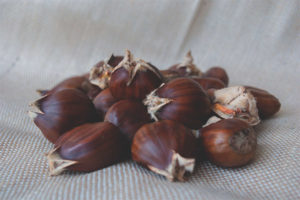

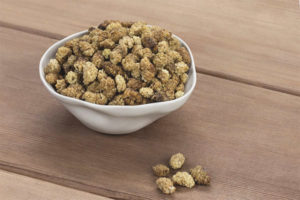
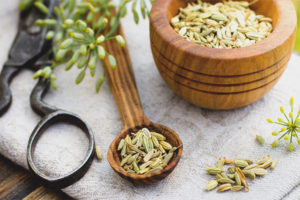
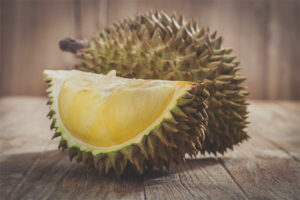

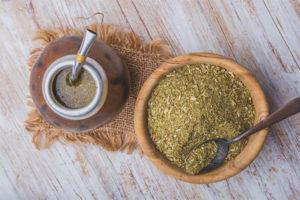
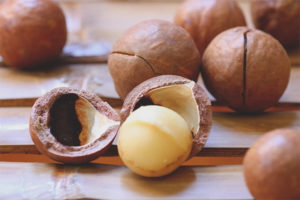
Submit